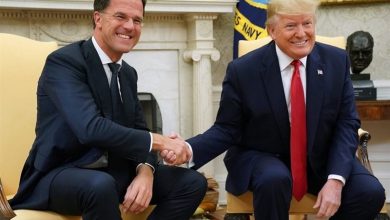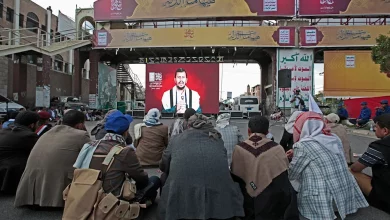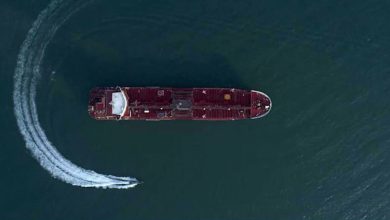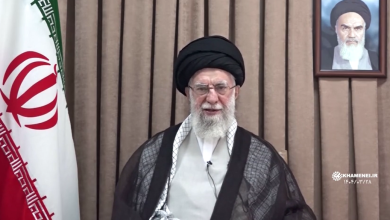Coronavirus pandemic shows West’s failure, immorality: Syrian President Assad

Syrian President Bashar al-Assad says the ongoing global crisis caused by the novel coronavirus pandemic has exposed Western countries’ failure and immorality.
“The coronavirus crisis has exposed the failure of the Western regimes as well as their immorality, because the pandemic showed that these regimes only serve a select few of individuals with vested interests, instead of serving their people,” Syria’s president said in a meeting with Iran’s Foreign Minister Mohammad Javad Zarif and his accompanying delegation in Damascus on Monday.
The Syrian president also offered his condolences to the Iranian government and people over the loss of lives caused by the deadly coronavirus, Syria’s official news agency SANA reported.
He lashed out at certain Western counties, mainly the United States, for using the pandemic as a political opportunity to impose sanctions on other states despite the current exceptional humanitarian circumstances.
The Iranian foreign minister, for his part, said the US administration’s refusal to lift sanctions on Syria and Iran has revealed its inhumane nature to the world.
“Now, the true intentions of the US with regard to its refusal to lift cruel sanctions on nations under the difficult situation of fighting against this disease has been revealed,” Zarif said.
Iran has been doing its utmost to contain COVID-19, the respiratory disease caused by the new coronavirus, despite the hardships caused by Washington’s cruel sanctions.
Tehran has repeatedly said it does not seek Washington’s help in the fight, but wants it to lift its illegal economic sanctions so that Iran could mobilize its own resources to tackle the pandemic.
The administration of US President Donald Trump has not only defied international calls on Washington in recent weeks to halt its draconian sanctions on Tehran, but has even slapped more such restrictive measures on the Islamic Republic.
Washington re-imposed its sanctions on Iran in May 2018 after unilaterally leaving a historic UN-endorsed nuclear accord with Tehran and five other major powers — the UK, France, Russia and China plus Germany.
In a Sunday post on Twitter, the Iranian foreign minister once again warned the US president against interfering in the internal affairs of other countries amid the new coronavirus.

Zarif to Trump: Stop interfering in other nations’ affairs; mine especially
“All you need to do is stop interfering in the affairs of other nations; mine especially. And believe me, we do not take advice from ANY American politician,” Zarif said.
Elsewhere in their meeting, Zarif and Assad discussed ways to develop bilateral relations, particularly in the economic sector, and implementation of joint ventures to serve the interests of the two countries’ peoples.
They also exchanged views about the latest political developments, including the Astana process and the persistence of Turkish military aggression in Syria’s embattled northwestern region.
The Syrian president said Turkey’s acts of aggression expose its true intentions as it has failed to remain committed to the agreements it entered whether in Astana or Sochi, all of which call for recognition of Syria’s sovereignty and territorial integrity.
Zarif also denounced the West’s current attempts to re-exploit the issue of “chemical weapons” in Syria, saying it is shameful that this pretext would be used again in light of the current situation around the world.
Western governments and their allies have never stopped pointing the finger at Damascus whenever an apparent chemical attack has taken place.
This is while the Syrian government surrendered its stockpiles of chemical weapons in 2014 to a joint mission led by the UN and the Organization for the Prohibition of Chemical Weapons, which oversaw the destruction of the weaponry.
The armed conflict began in Syria in 2011. But the Syrian military, receiving support from its allies, has taken back control of most of the areas that had been held by militant and terrorist groups.
Idlib remains the only large area in the hands of anti-Damascus militants after the Syrian military — backed by Iran and Russia — managed to undo militant gains across the country and bring back almost all of Syrian soil under government control.
Turkey — along with Russia and Iran — entered two frameworks of Syria-focused negotiations that resulted into two agreements.
A first deal was signed in Kazakhstan’s capital Nur Sultan, formerly called Astana, arranging for the creation of de-escalation zones across Syria, including in parts of Idlib. The second one that came about in the Russian resort city of Sochi allowed Ankara to bring in a small number of forces to man the observation posts to reinforce de-escalation.
Ankara has, however, been found in default of both the deals by failing to separate terrorists from what it calls “moderate” opposition groups in the Idlib zone and by sending thousands of troops and heavy military hardware into the province in an unprecedented incursion to back the militants.

Turkey beefs up military presence in Syria amid Russia spat
The convoy features military trucks, armored vehicles, and self-propelled artillery.
According to reports, Turkey has significantly beefed up its military presence in northwestern Syria amid continued disagreement with Russia over Damascus’ counterterrorism operations in the area.
Ankara earlier deployed nearly 6,000 troops to the de-escalation zones following last month’s ceasefire deal with Russia.

Turkey continues Syria offensive, hits 150 targets in Afrin
On March 5, Russia and Turkey, which support opposite sides in the Syrian conflict, came to an agreement on a ceasefire regime in Idlib, where Turkish aggression against the Syrian government had risked sparking a war.
Under the agreement, joint Russian-Turkish patrols secure a six-kilometer-wide corridor along a highway connecting the two government-held provinces of Latakia and Aleppo.







